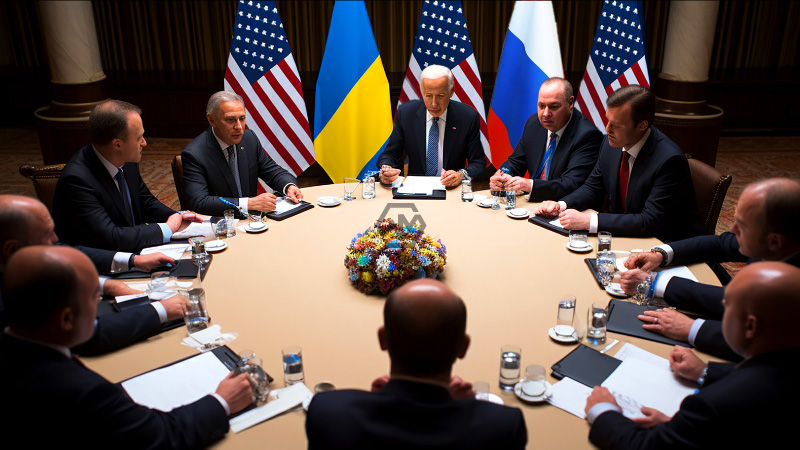- Trump’s envoy claims Putin is open to a “permanent peace” deal with Ukraine.
- Russia insists Ukraine drop NATO bid and withdraw from occupied regions.
- U.S.-Russia talks include potential commercial ties to stabilize the region.
U.S. President Donald Trump’s special envoy Steve Witkoff has stated that Vladimir Putin is now open to a lasting peace deal in Ukraine following multiple meetings, the latest held in Saint Petersburg.
Despite this diplomatic momentum, Russian Foreign Minister Sergei Lavrov highlighted the difficulty of aligning with the U.S. on critical aspects of the agreement.
Peace Talks Stumble Over Ukraine’s NATO Bid and Territorial Disputes
While optimism grows in Washington about the possibility of peace, Moscow continues to hold firm on its core demands. Lavrov underscored that the outlines of a deal acceptable to Russia were laid out by President Putin in June 2024 — including recognition of Russia’s control over occupied territories and the abandonment of Ukraine’s NATO goals.
In contrast, the U.S. is aiming for a comprehensive ceasefire, seeking to de-escalate hostilities in both eastern Ukraine and the Black Sea. Trump’s team has been pushing for this outcome as part of the president’s wider legacy strategy, but so far has not secured concrete concessions from the Kremlin.
One unusual element of the ongoing negotiations is the integration of potential economic incentives. Witkoff revealed that business opportunities between the U.S. and Russia were discussed as a means to provide regional stability and possibly soften resistance on both sides.
Still, the Kremlin remains deeply skeptical. Lavrov emphasized that Russia will never again allow itself to be economically reliant on Western powers, signaling long-term shifts in Russia’s strategic priorities even if a peace deal materializes.
While hopes for a resolution to the Ukraine conflict are rising in diplomatic circles, the gulf between U.S. aspirations and Russia’s core demands suggests that lasting peace will require more than goodwill — it will require significant, possibly painful, compromises on both sides.
“We are well aware of what a mutually beneficial deal looks like… and what a deal looks like that could lead us into another trap.” — Sergei Lavrov



